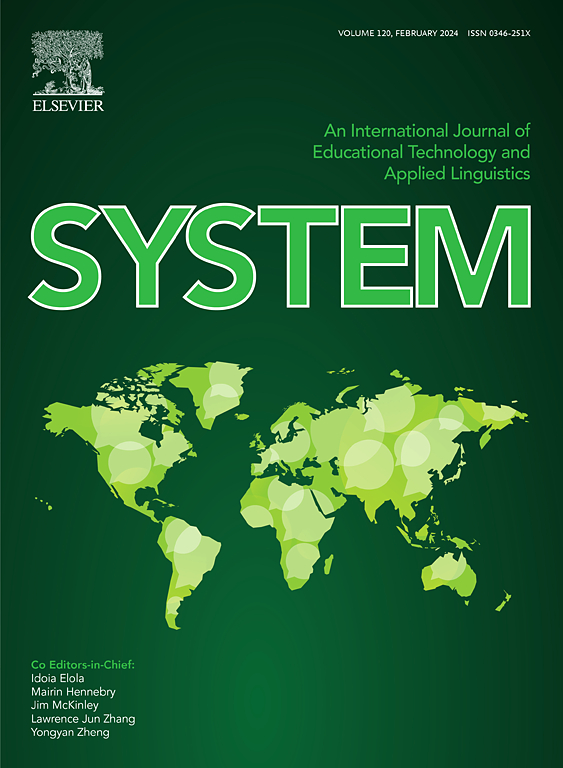Baicalin alleviates intestinal inflammation and microbial disturbances by regulating Th17/Treg balance and enhancing Lactobacillus colonization in piglets
IF 7
1区 农林科学
Q1 Agricultural and Biological Sciences
引用次数: 0
Abstract
Intestinal inflammation is a common and serious health problem in piglet production, especially enteritis caused by pathogenic Escherichia coli (E. coli). This condition often leads to high mortality, slow weight gain, and significant economic losses. In this study, we isolated an E. coli strain, SKLAN202302, from the colon of diarrheal piglets to create an intestinal inflammation model for evaluating the protective effects of baicalin. Piglets infected with E. coli exhibited significant reductions in body weight, feed intake, small intestine length, and ileal goblet cell count (P < 0.05), along with deteriorated ileal morphology. However, baicalin supplementation resulted in body weights, feed intake, and intestinal morphology similar to those of the control group. Notably, there was a significant increase in the colonization of Lactobacillus species, particularly Lactobacillus_reuteri, Lactobacillus_amylovorus, and Lactobacillus_johnii, compared to the E. coli group (P < 0.05). At the metabolic and transcriptional levels, E. coli infection increased inflammatory mediators, including eicosanoids (leukotriene F4, prostaglandin F1a, leukotriene E4, thromboxane B2, prostaglandin G2, and PGH2), monosaccharides, and TCA cycle intermediates (oxoglutaric acid, glutaric acid, adipic acid, citric acid, and isocitric acid) in the ileum. It also promoted the expression of genes related to autoimmune diseases and the Th17 differentiation signaling pathway (CTLA4, IFN-ALPHA-8, IL12RB2, TRAV3, TRAV16, FOS, and VEGFA), as well as inflammatory factors. Conversely, baicalin supplementation not only counteracted these effects but also enhanced the presence of metabolites such as phospholipids [including lysoPC (P-18:1(9Z)/0:0), PC (17:0/0:0), lysoPC (16:1(9Z)/0:0), PC (18:0/0:0), lysoPC (18:0/0:0), PA (10:0/i-16:0), and PA (10:0/8:0)] and amino acids. It also regulated genes within the IL-17 signaling pathway (IL4, CCL17, CXCL10, IFNG, and CXCL2), suggesting a mechanism by which baicalin mitigates E. coli-induced intestinal and microbial disturbances. Subsequent flow cytometry analysis showed that E. coli infection increased the numbers of CD3+ and Foxp3+ cells, decreased IL-17A+ cells, and reduced Th17/Treg ratios. Baicalin supplementation restored these parameters to control levels. Baicalin supplementation effectively alleviates E. coli-induced intestinal inflammation and microbial disturbances in piglets by enhancing beneficial Lactobacillus colonization, counteracting inflammatory mediators, and regulating immune-related gene expression and the Th17/Treg balance. These findings highlight baicalin’s potential in alleviating intestinal inflammation.黄芩苷通过调节Th17/Treg平衡和促进乳酸菌定植来缓解仔猪肠道炎症和微生物紊乱
肠炎是仔猪生产中常见的严重健康问题,尤其是由致病性大肠杆菌(E. coli)引起的肠炎。这种疾病通常会导致死亡率高、增重缓慢和重大经济损失。在本研究中,我们从腹泻仔猪的结肠中分离出一株大肠杆菌(SKLAN202302),以建立一个肠炎模型来评估黄芩苷的保护作用。感染大肠杆菌的仔猪表现出体重、采食量、小肠长度和回肠腺细胞计数显著下降(P < 0.05),同时回肠形态恶化。然而,补充黄芩苷后,体重、采食量和肠道形态与对照组相似。值得注意的是,与大肠杆菌组相比,乳酸杆菌,尤其是reuteri乳酸杆菌、amylovorus乳酸杆菌和johnii乳酸杆菌的定植率明显增加(P < 0.05)。在代谢和转录水平上,大肠杆菌感染增加了回肠中的炎症介质,包括类二十酸(白三烯 F4、前列腺素 F1a、白三烯 E4、血栓素 B2、前列腺素 G2 和 PGH2)、单糖和 TCA 循环中间产物(氧谷氨酸、戊二酸、己二酸、柠檬酸和异柠檬酸)。它还促进了与自身免疫性疾病和 Th17 分化信号通路相关的基因(CTLA4、IFN-ALPHA-8、IL12RB2、TRAV3、TRAV16、FOS 和 VEGFA)以及炎症因子的表达。相反,补充黄芩苷不仅能抵消这些影响,还能提高磷脂[包括溶血磷脂(P-18:1(9Z)/0:0)、PC(17:0/0:0)、溶血磷脂(16:1(9Z)/0:0)、PC(18:0/0:0)、溶血磷脂(18:0/0:0)、PA(10:0/i-16:0)和 PA(10:0/8:0)]和氨基酸等代谢物的含量。黄芩苷还能调节 IL-17 信号通路中的基因(IL4、CCL17、CXCL10、IFNG 和 CXCL2),这表明黄芩苷能减轻大肠杆菌引起的肠道和微生物紊乱。随后的流式细胞术分析表明,大肠杆菌感染增加了 CD3+ 和 Foxp3+ 细胞的数量,减少了 IL-17A+ 细胞的数量,并降低了 Th17/Treg 的比例。补充黄芩苷后,这些参数恢复到控制水平。通过增强有益乳酸菌定植、抵消炎症介质、调节免疫相关基因表达和 Th17/Treg 平衡,补充黄芩苷可有效缓解大肠杆菌诱导的仔猪肠道炎症和微生物紊乱。这些发现凸显了黄芩苷在缓解肠道炎症方面的潜力。
本文章由计算机程序翻译,如有差异,请以英文原文为准。
求助全文
约1分钟内获得全文
求助全文
来源期刊

Journal of Animal Science and Biotechnology
AGRICULTURE, DAIRY & ANIMAL SCIENCE-
CiteScore
9.90
自引率
2.90%
发文量
822
审稿时长
17 weeks
期刊介绍:
Journal of Animal Science and Biotechnology is an open access, peer-reviewed journal that encompasses all aspects of animal science and biotechnology. That includes domestic animal production, animal genetics and breeding, animal reproduction and physiology, animal nutrition and biochemistry, feed processing technology and bioevaluation, animal biotechnology, and meat science.
 求助内容:
求助内容: 应助结果提醒方式:
应助结果提醒方式:


